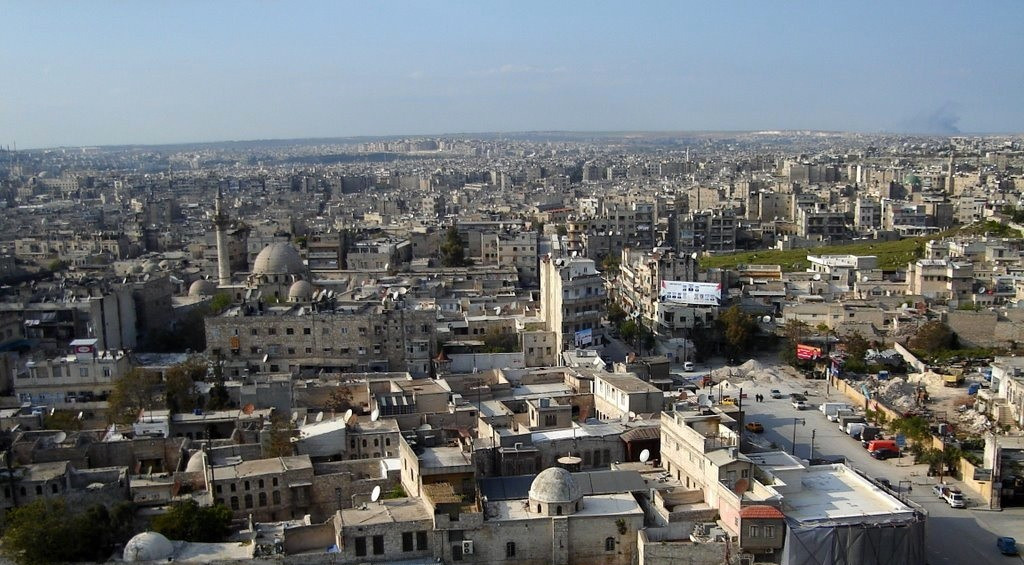Earlier this week, President Obama officially recognized the National Coalition for Syrian Revolutionary and Opposition Forces, the mishmash of rebel groups that have come together to unite against Syrian President Bashar al-Assad. After months of not taking definitive action against the Assad regime, this step has been viewed by many (including Obama) as “a big step,” an indicator that change is finally nigh for Syria. But in reality, the US government’s endorsement of this coalition as the true representative of the Syrian people is fundamentally problematic, and has ominous implications for Syria going forward.
First and foremost, it simply doesn’t make sense for Obama to acknowledge the legitimacy and cohesiveness of a group that his administration doesn’t believe is legitimate and cohesive. For months (and especially since the various rebel factions joined together), the government has been entreating the opposition to separate itself from radical Islamist groups it says are trying to hijack the revolution for their own purposes. And as I wrote in my last post, the US government’s policy on negotiating with (let alone acknowledging the legitimacy of) terrorist groups is pretty simple: they don’t. But on the very same day the Obama administration recognized the coalition’s legitimacy, it condemned the al-Nusra Front (supposedly “one of the most effective groups in the Syrian resistance”) for using the Syrian conflict to advance its own radical ideology, imposed sanctions on it, and oh yeah, officially designated it as a terrorist organization.
How does that make sense? Even though Obama qualified his support for the coalition by saying that he was still worried about the influence of some radical groups, he still recognized it on the whole as legitimate. Officials from his administration have claimed they will provide financial assistance for the coalition going forward, but the fact that they have designated factions of the opposition as terrorist groups makes this action extremely hypocritical. After all, part of what it means to be blacklisted by the US for terrorism is that American citizens aren’t allowed to give it material support. So how does the government justify recognizing the coalition as legitimate and implying future financial support while simultaneously condemning part of the coalition as illegitimate and unable to receive American financial support?
The distinction, as always, is in the fine print. According to an unnamed government official, Obama’s support for the coalition is being viewed as “a political recognition, not a legal recognition.” The former, as one might suppose, carries less weight than the latter. If the opposition were legally recognized as the legitimate representative of the Syrian people, it would be seen as an actual alternative to Assad’s regime. In order to achieve this level of recognition, the coalition would had to have taken over the majority of the country’s territory as well as its treaty obligations, which hasn’t yet come to pass. But in the meantime, the Obama administration believes it has taken a major step forward in recognizing it “politically” and promising aid that it realistically can’t deliver in any legitimate manner. Given the nature in which the government expressed its support for the coalition, it is simply ridiculous to hope that the coalition will benefit.
Furthermore, regardless of the actions of the US administration, the fact remains that the coalition does include some groups who may not be acting in the population’s best interests. The al-Nusra Front is only one of the radical Islamist groups that have joined with the coalition in a bid for power in the war-torn country. For one, they are dangerous to their own people: as effective as al-Nusra’s military tactics (including suicide attacks and IED operations) have been against the regime, they have also killed a huge number of innocent Syrian civilians. According to the New York Times, the group receives financial support from Al Qaeda in Iraq (AQI) and is working in support of AQI’s ideals, which include instituting shari’ah (Islamic) law in Syria. The group’s religious motivations are not inherently dangerous, but the fact that it backs them up with dangerous means does not bode well for the unity of the coalition or for the Syrian people. Even aside from complications the US will face now that it has recognized the coalition, the very character of the opposition groups is such that it will pose dangers for the country in future.
Finally, the question remains: what will happen now? Perhaps this announcement, as well as the 400 troops and two Patriot missile batteries the US is sending to Turkey under NATO command (ostensibly to protect its border with Syria), are just the beginnings of a Libya-esque effort to oust Assad’s regime. Or perhaps Obama is right, and his political recognition of the opposition really will signify a turning point in the rebels’ chances. This conflict has been so unpredictable that it is hard to say what will happen next. However, several things are certain: the opposition is divided into factions, some of those factions are dangerous, and the nature of the Obama administration’s relationship with the coalition going forward is still incredibly ambiguous. These facts are very worrying, and one can only hope that the US keeps the interests of the Syrian people at heart in the coming weeks.
